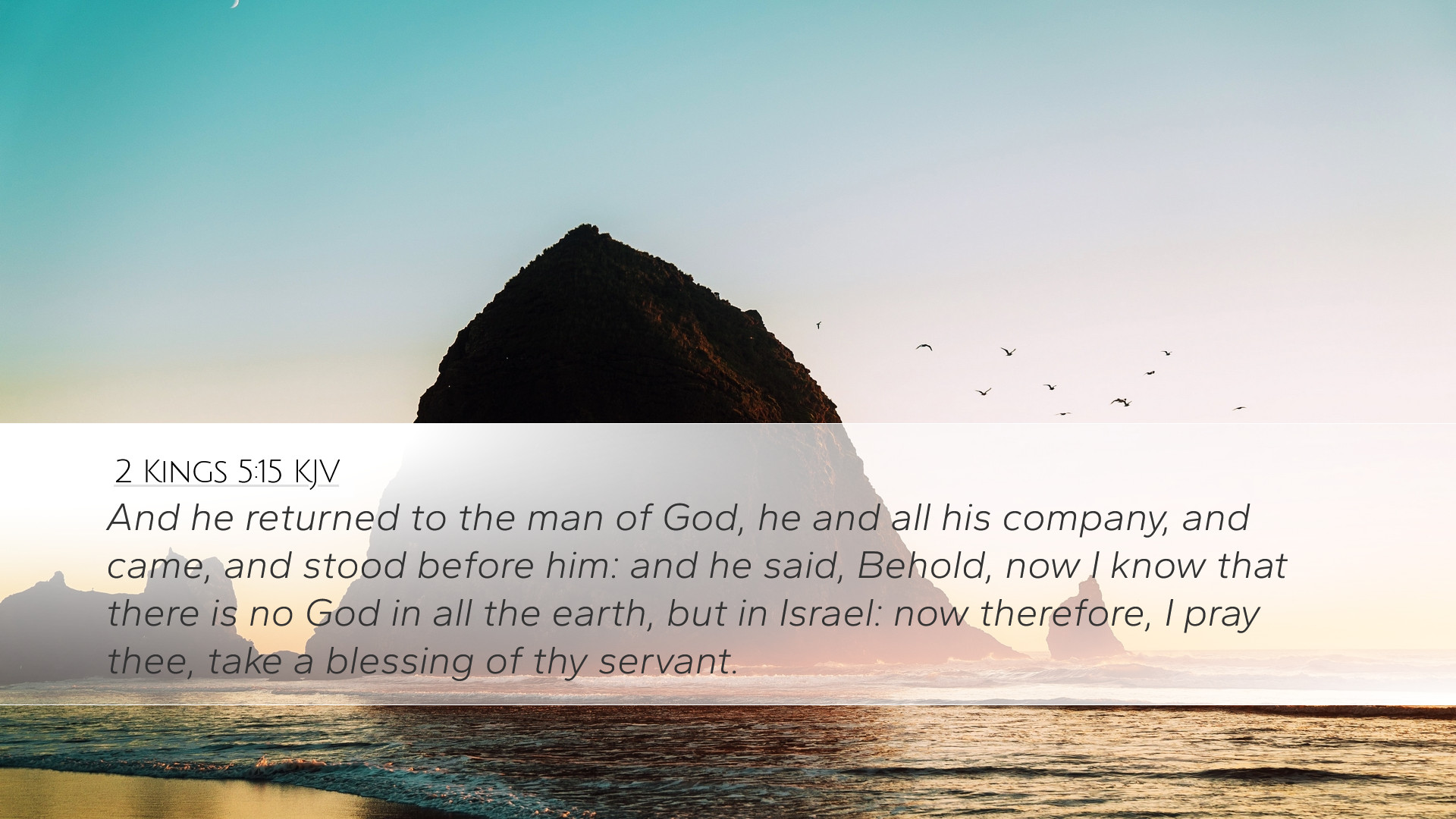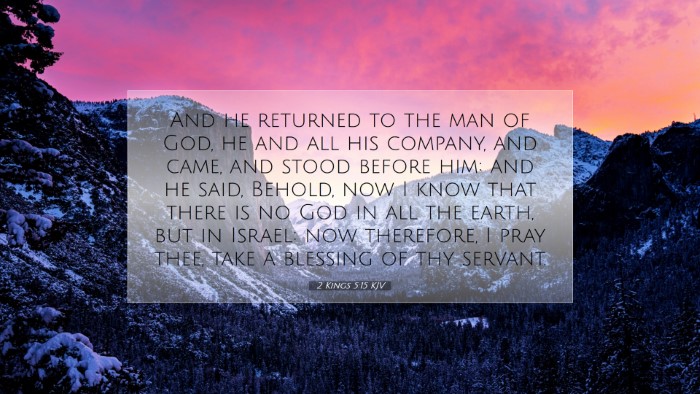Commentary on 2 Kings 5:15
Verse Text: "And he returned to the man of God, he and all his company, and came, and stood before him: and he said, Behold, now I know that there is no God in all the earth, but in Israel: now therefore, I pray thee, take a blessing of thy servant."
Contextual Background
This passage is pivotal in the narrative of Naaman, a Syrian military leader afflicted with leprosy, who sought healing through the prophet Elisha. This story is significant not only because of the miraculous healing but also because it emphasizes the theme of faith, humility, and acknowledgment of the true God among nations.
Thematic Insights
- Conversion and Understanding: Naaman's declaration illustrates a profound transition from an earthly understanding of divinity to a recognition of the one true God of Israel. His statement signifies a personal transformation and spiritual awakening.
- Inclusive Grace: The narrative shows that God's grace is extended beyond Israel. Naaman, a foreigner, experiences divine mercy and healing, emblematic of God's overarching sovereign plan for all humanity.
- The Role of Faith: Naaman’s journey reflects the necessity of faith. Though initially filled with pride, his eventual obedience to Elisha's directive underscores how faith operates through humble submission.
Commentary Excerpts
Matthew Henry
Henry discusses how Naaman's return signifies a turning point in his life marked by humility and gratitude. He notes that Naaman’s recognition of God's supremacy illustrates the nature of true repentance. Naaman teaches us about the importance of returning to worship after receiving blessings, emphasizing that healing should lead to a deeper relationship with God.
Albert Barnes
Barnes elaborates on Naaman's acknowledgment that there is no God in all the earth but in Israel. This assertion reflects the monotheistic aspect of Israel's faith amidst a polytheistic culture and serves as a lesson in the importance of recognizing God's sovereignty. He emphasizes that the resultant gratitude is crucial, as it leads to a willingness to offer thanks and support to God’s servants.
Adam Clarke
Clarke highlights the geographical and spiritual significance of Naaman’s healing. He points out that Naaman, once an enemy of Israel, is now an emissary of faith, showcasing the transformative power of God's grace. Clarke stresses that Naaman's request for Elisha to accept a gift signifies the acknowledgment of the value of the divine blessing he received.
Pastoral Reflections
For pastors, this passage serves as a reminder to guide congregants towards recognizing the hand of God in their lives. Just as Naaman returned to acknowledge and thank Elisha, believers are called to thank God for His works. This story can be a powerful illustration in preaching regarding the necessity of humility, the deepening of faith, and the call for thanksgiving after receiving God's blessings.
Theological Implications
The verse emphasizes the universal nature of God’s sovereignty. It presents a challenge to notions of exclusion, urging a reflection on how God can operate in the hearts of non-Jews. The text pushes scholars to consider the implications of God's mercy extending beyond specific boundaries and how this shapes our understanding of evangelism and missions today.
Conclusion
2 Kings 5:15 encapsulates a monumental moment of recognition and worship. Naaman’s journey from pride to humility, from a heart of skepticism to one of reverence, provides timeless lessons on faith and God's redemptive purpose for all people. It ignites a desire within believers to continually seek and acknowledge God's work in their lives.


